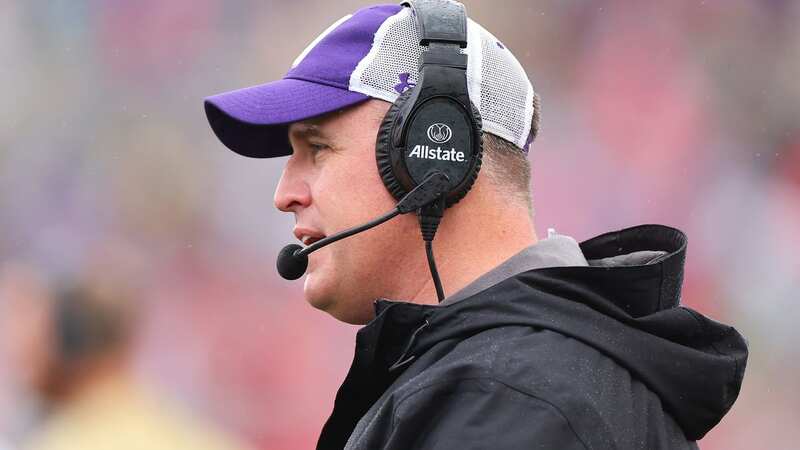

Northwestern fired head football coach Pat Fitzgerald on Monday night amid claims his team fostered an abusive culture that included hazing rituals. A new statement from university president Michael Schill revealed further details about the situation.
Fitzgerald had been on a two-week unpaid suspension, but the school has now opted to completely end its relationship with the 48-year-old after reconsidering its stance and learning new details beyond the results of an investigation that began in January.
"The decision comes after a difficult and complex evaluation of my original discipline decision imposed last week on Coach Fitzgerald for his failure to know and prevent significant hazing in the football program," wrote Schill in an open letter to the Northwestern community.
Schill listed several points that led to his decision to axe Fitzgerald, including that "during the investigation, 11 current or former football student-athletes acknowledged that hazing has been ongoing within the football program. In new media reporting today, still more former Northwestern football student-athletes confirmed that hazing was systemic dating back many years. This has never been about one former student-athlete and his motives; this is much bigger than that."
An initial report found evidence of a toxic culture, though it did not indicate that Fitzgerald knew what went on. And while Schill noted that he still doesn't have proof of Fitzgerald being aware of locker room wrongdoing, new information swayed him to make a permanent change.
 Joe Burrow backs Patrick Mahomes after Kansas City Chiefs reach Super Bowl
Joe Burrow backs Patrick Mahomes after Kansas City Chiefs reach Super Bowl
"The hazing included forced participation, nudity and sexualized acts of a degrading nature, in clear violation of Northwestern policies and values," Schill wrote. "I am grateful that — to my knowledge — no student suffered physical injury as a result of these behaviors.
"While some student-athletes believed the hazing was in jest and not harmful, others viewed it as causing significant harm with long-term consequences."
"The hazing was well-known by many in the program, though the investigator failed to find any credible evidence that Coach Fitzgerald himself knew about it," Schill continued. "As the entire six-month independent investigation was confidential, I only recently learned many of the details, including the complainant’s identity. I spoke with his parents on Friday and the student on Sunday."
The school president added: "The head coach is ultimately responsible for the culture of his team. The hazing we investigated was widespread and clearly not a secret within the program, providing Coach Fitzgerald with the opportunity to learn what was happening. Either way, the culture in Northwestern Football, while incredible in some ways, was broken in others."
In the days after Fitzgerald's suspension was announced, the university's independent student newspaper quoted two players who detailed numerous alleged instances of hazing, including incidents where student-athletes would allegedly group together in a dark locker room and "hump" younger team-mates.
Northwestern last Friday also banned off-campus practices at a base that had been used in Wisconsin and created an independent locker room monitor to prevent hazing in the future.
Fitzgerald was elevated to the top position in the football programme in 2006 after serving on the staff as a defensive assistant. He has yet to comment on his firing.